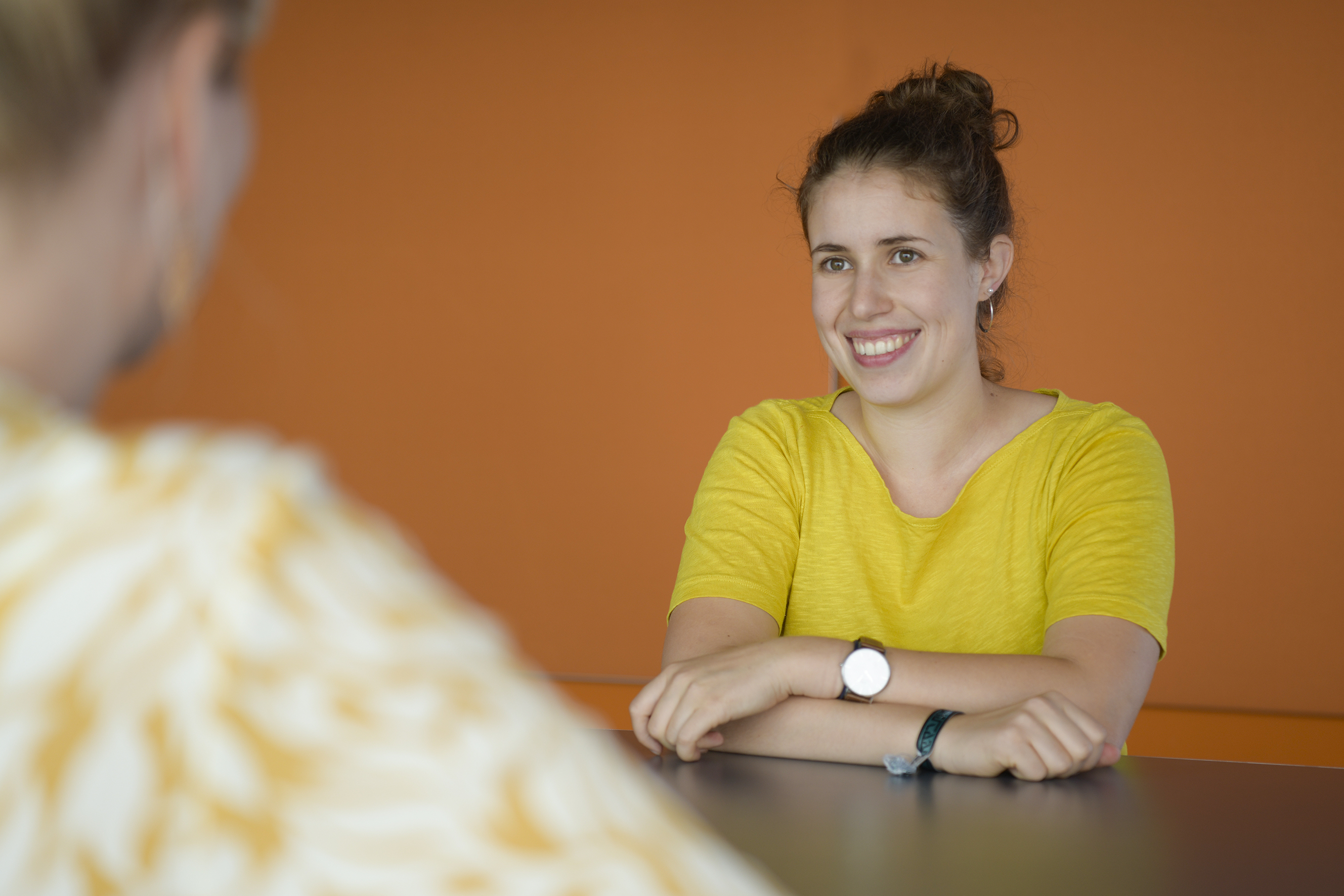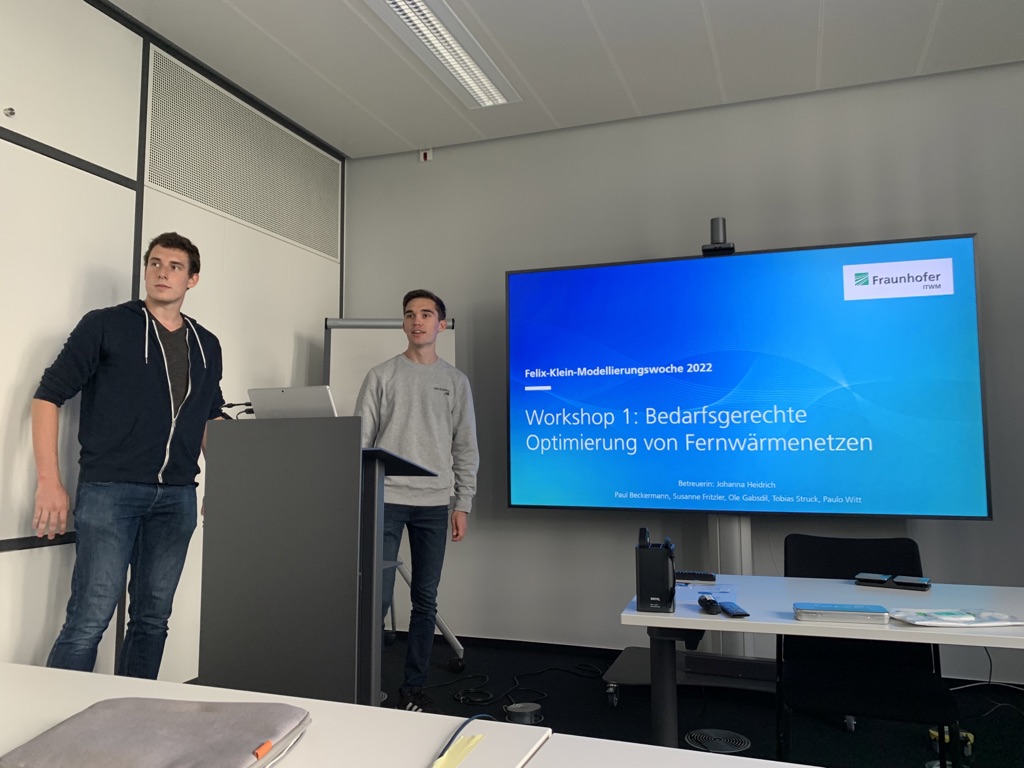At the Fall School 2023, Johanna Heidrich gave a detailed account of her everyday work and her math career so far to the scholarship holders in the context of the lecture series »Study, PhD, Work at the University and at Fraunhofer ITWM«.
Her talk was titled »District Heating, Fiber Spinning, and Electrolytic Cells – from Mathematics Studies to Applications«, because the 27-year-old PhD student has a lot to tell – be it about her PhD, which she has been working on since summer 2021, or her path as a former Felix Klein scholarship holder. We took the opportunity to interview her:

